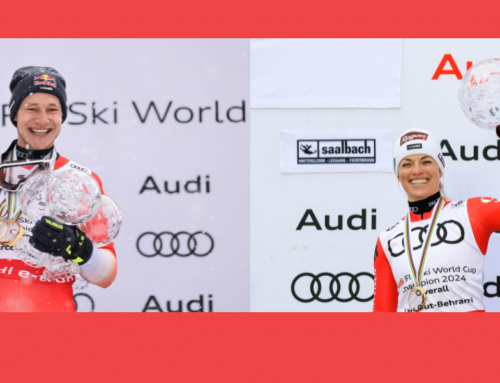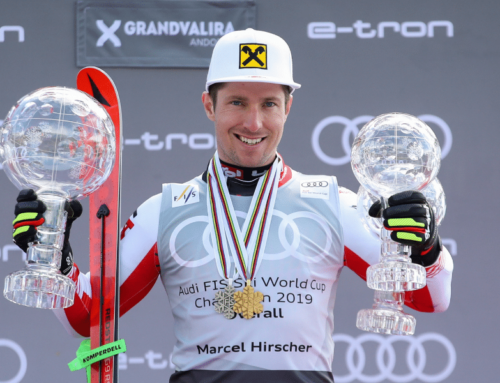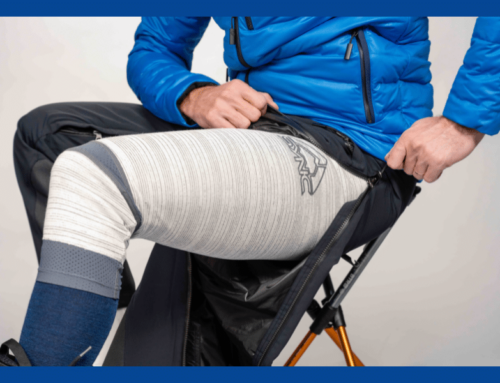Skiing and Focus: Navigating Technology Distractions
Featured Image: GEPA pictures/Andreas Pranter
Does Technology Use Hurts Ski Racers?
I have a lot of pet peeves when it comes to ski racers when they’re training, including leaning on their poles shortly before a training run (no intensity), chatting it up with teammates when they’re in the starting gate of a training course (no focus), and half-hearted effort to the first gate (easing into the course means leaving time on the hill). And I have a new pet peeve that has quickly risen to the top of my list: racers have their phones with them and check their social media between runs.
This pet peeve extends far beyond the hill and into the daily lives of young people. The last generation or two (those who grew up after the iPhone was invented) have become addicted to social media, including Facebook, Twitter, Instagram, TikTok, Snapchat and texting. When I say “addicted,” I mean that literally; research has demonstrated that social media has the same neurochemical effect on the brain as drugs, alcohol and gambling.
A broader discussion of the role of technology in human development is beyond the scope of this article (but you can read more about it on my Technology blog). Still, this article will explore some real implications of media overuse and misuse on ski racers’ lives and development.
Let’s return to my newest pet peeve, namely, the apparent inability of most young racers to disconnect from their phones, even during training. So, you may wonder how this constant media use impacts ski racers.
The most significant area in which racers are finding more and more difficulty is the simple act of focusing. Considerable research has found that the attention spans of young people have decreased since the rise of smartphones and social media. Because of the distractions caused by the constant pinging, buzzing, and vibrating of social media notifications, young people are losing the ability to stay focused for extended periods. The result has been a decline in study habits, learning, and grades.
This is no less of a problem in ski racing. Many coaches in recent years have told me that their racers are far less able to focus than previous generations. The consensus is that racers are generally less able to pay attention to their coaches’ instructions, remember the feedback, and stay focused from start to finish in training and races.
One of the most common reasons young racers come to me is that they have trouble focusing on what they’re working on in training and make mistakes in races because they lose focus. In recent years, I have also found that young racers have a much more difficult time staying focused during imagery sessions I conduct with them. Many tell me that their minds drift off quickly and they cannot maintain or regain their focus on their ski racing imagery easily.
Why is focus so important in ski racing? The ability to focus is the foundation of many things related to consistently fast skiing. Focus impacts learning and skill acquisition. With the capacity for sustained focus, racers will technically or tactically remember what they are working on during training. As soon as racers lose focus, they stop doing whatever they were working on and fall back to old habits. Without an ability to maintain focus for more extended periods (say, 45-90 seconds of race courses), they won’t be able to gain enough quality repetition necessary to ingrain new ski-racing techniques and tactics effectively. The bottom line is that racers won’t develop as fully or as quickly as they can and, as a result, may never realize their full potential.
Focus plays a significant role on race day as well. First, focus is essential during inspection. Your ability to focus influences your memory of the course as you inspect. If you can’t concentrate well as you slip the course, you won’t transfer your course inspection to long-term memory. And we all know that terrible feeling of reviewing the course in your mind in the start area before your race run and saying, “OMG! Is that a flush or a hairpin after the transition?”
Focus is essential on course as well. Without consistent focus from start to finish, whether on technique, tactics, or just going fast, racers have little chance to ski a race course without mistakes. And if the errors due to lack of focus are big enough, it will result in a big, fat DNF!
I can’t realistically get racers to limit media use away from our sport. At the same time, I would like to make some reasonable suggestions that racers, coaches, and programs can implement to at least keep the tech monster at bay while racers are training and racing
First, a few thoughts for racers. Off the hill, a consistent mental imagery program is one of the best antidotes to losing focus due to excessive media use. When you do imagery, you are, by its very nature, requiring yourself to focus, thereby exercising your brain and training it to focus from the start to the finish of your imagined runs
On snow, I do understand that many of you (including most World Cuppers) use your smartphone as a mental tool on race day, mainly by listening to music to help you get motivated, establish a positive mindset, adjust your intensity, keep your mind off the race, and generate positive emotions. I support that!
But when it comes to training, do you need to listen to music on the ride up the lift? Do you need to check your social media between runs? Please ask yourself what will and will not help you to stay focused in training and consider leaving your phone in your boot bag when you head out for training.
Second, for coaches. You should have a conversation with your athletes to educate them about the importance of focus and talk to them about how media during training and races can help or hurt their preparations and skiing. See if you can reach a consensus on how, when, and where they use their media to help them ski their fastest.
Third, for programs. At the club, team, or academy level, I recommend assembling a committee of coaches, parents, and racers to create guidelines to help shape your program’s media culture. These guidelines will act as the norms and defaults for media use, so racers will be more likely to adhere to them. For example, some common-sense recommendations could include:
- No phones on the hill during training
- No phones at team meetings
- For academies, no phones at meals (they discourage face-to-face social interactions)
- Race-day use is limited to music
As we all know, ski racing is a sport of milliseconds. Any advantage you can gain that will help you ski faster can make a big difference on the result sheet at the end of the race day. One simple yet powerful advantage you can gain is to focus effectively in training and be totally focused from start to finish in races. In my humble opinion, a key tool to improve your focus is to keep your phone off the hill during training and use it only as a tool rather than a toy on race day.





















